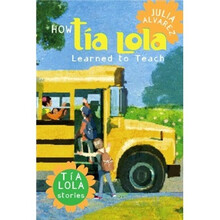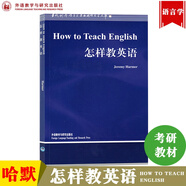How Tia Lola Learned to Teach簡(jiǎn)介,目錄書摘

Tia Lola has been invited to teach Spanish at her niece and nephew's elementary school. But Miguel wants nothing to do with the arrangement. He hasn't had an easy time adjusting to his new school in Vermont and doesn't like living so far away from Papi, who has a new girlfriend and an announcement to make. On the other hand, Miguel's little sister, Juanita, can't wait to introduce her colorfully dressed aunt with her migrating beauty mark to all her friends at school--that is, if she can stop getting distracted long enough to remember to do so. Before long, Tia Lola is organizing a Spanish treasure hunt and a Carnaval fiesta at school. Will Miguel be willing to join the fun? Will Juanita get her head out of the clouds and lead her classmates to victory in the treasure hunt?
Told with abundant humor and heart, Julia Alvarez's new Tia Lola story is the long-awaited sequel to the beloved How Tia Lola Came to Visit Stay.
Julia Alvarez was born in New York City during her Dominican parents' "first and failed" stay in the United States. While she was still an infant, the family returned to the Dominican Republic -- where her father, a vehement opponent of the Trujillo dictatorship, resumed his activities with the resistance. In 1960, in fear for their safety, the Alvarezes fled the country, settling once more in New York.
Alvarez has often said that the immigrant experience was the crucible that turned her into a writer. Her struggle with the nuances of the English language made her deeply conscious of the power of words, and exposure to books and reading sharpened both her imagination and her storytelling skills. She graduated summa cum laude from Middlebury College in 1971, received her M.F.A. from Syracuse University, and spent the next two decades in the education field, traveling around the country with the poetry-in-the-schools program and teaching English and Creative Writing to elementary, high school, and college students.
Alvarez's verse began to appear in literary magazines and anthologies, and in 1984, she published her first poetry collection, Homecoming. She had less success marketing her novel -- a semiautobiographical story that traced the painful assimilation of a Dominican family over a period of more than 30 eventful years. A series of 15 interconnected stories that unfold in reverse chronological order, How the Garcia Girls Lost Their Accents addresses, head-on, the obstacles and challenges immigrants face in adapting to life in a new country.
It took some time for "ethnic" literature to gain enough of a foothold in the literary establishment for Alvarez's agent, a tireless champion of minority authors, to find a publisher. But when the novel was released in 1991, it received strongly positive reviews. And so, at the tender age of 41, Alvarez became a star. Three years later, she proved herself more than a "one-hit wonder," when her second novel, In the Time of Butterflies was nominated for the prestigious National Book Critics Circle Award. Since then, she has made her name as a writer of remarkable versatility, juggling novels, poetry, children's books, and nonfiction with equal grace and aplomb. She lives in Vermont, where she serves as a writer in residence at her alma mater, Middlebury College. In addition, she and her husband run a coffee farm in the Dominican Republic that hosts a school to teach the local farmers and their families how to read and write.



![正版正版怎樣教英語(當(dāng)代國(guó)外語言學(xué)與應(yīng)用語言學(xué)文庫) [How to Teach English] 中國(guó)具有影響力的國(guó)外語言學(xué)文庫 正版正版怎樣教英語(當(dāng)代國(guó)外語言學(xué)與應(yīng)用語言學(xué)文庫) [How to Teach English] 中國(guó)具有影響力的國(guó)外語言學(xué)文庫](http://img14.360buyimg.com/n7/s186x186_jfs/t1/195848/27/27005/36444/62fb104fEe7fcccae/2beceee22a30672d.jpg)



 京公網(wǎng)安備 11000002000088號(hào)
京公網(wǎng)安備 11000002000088號(hào)